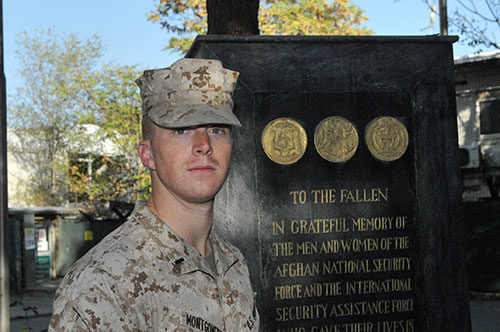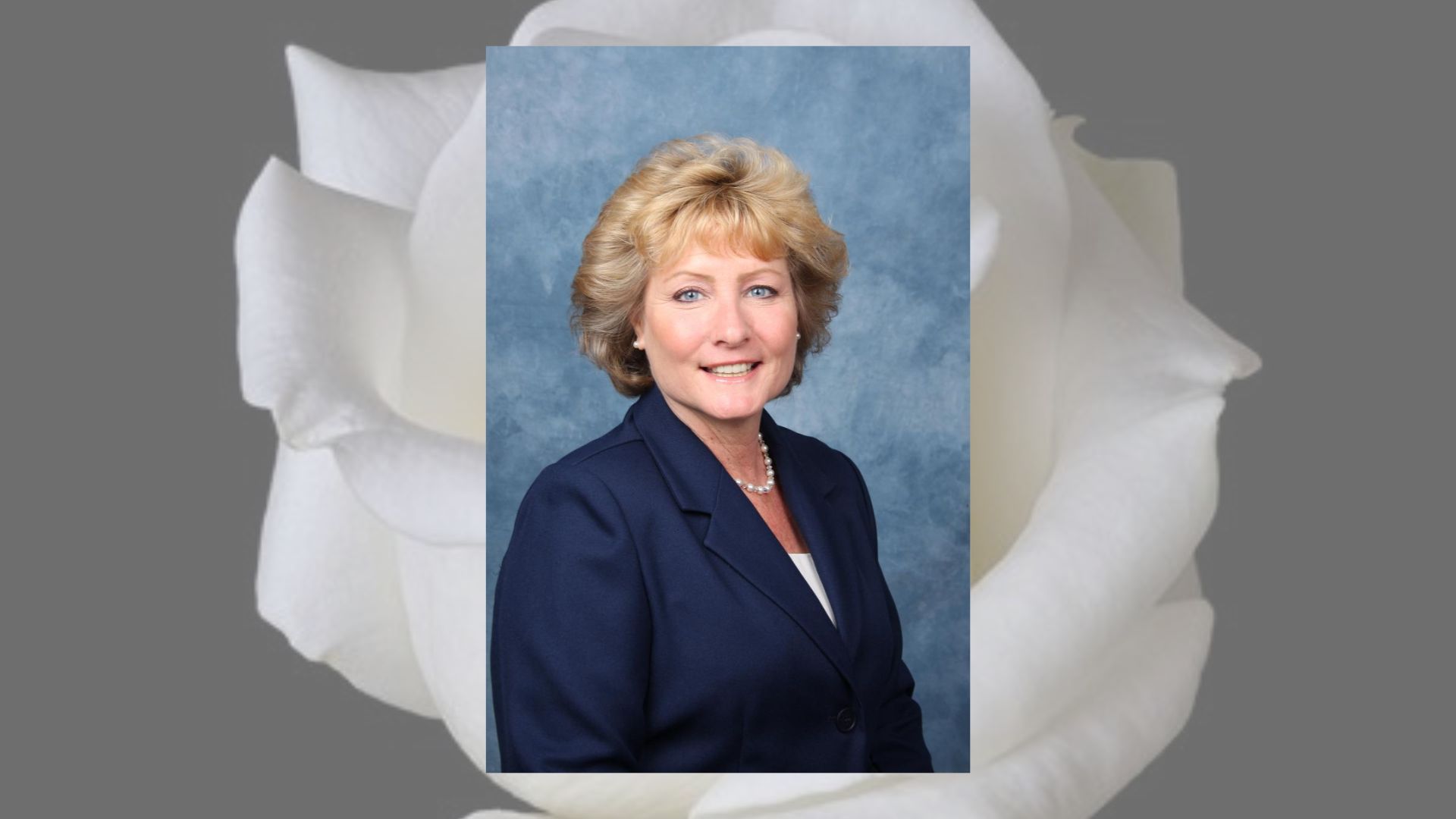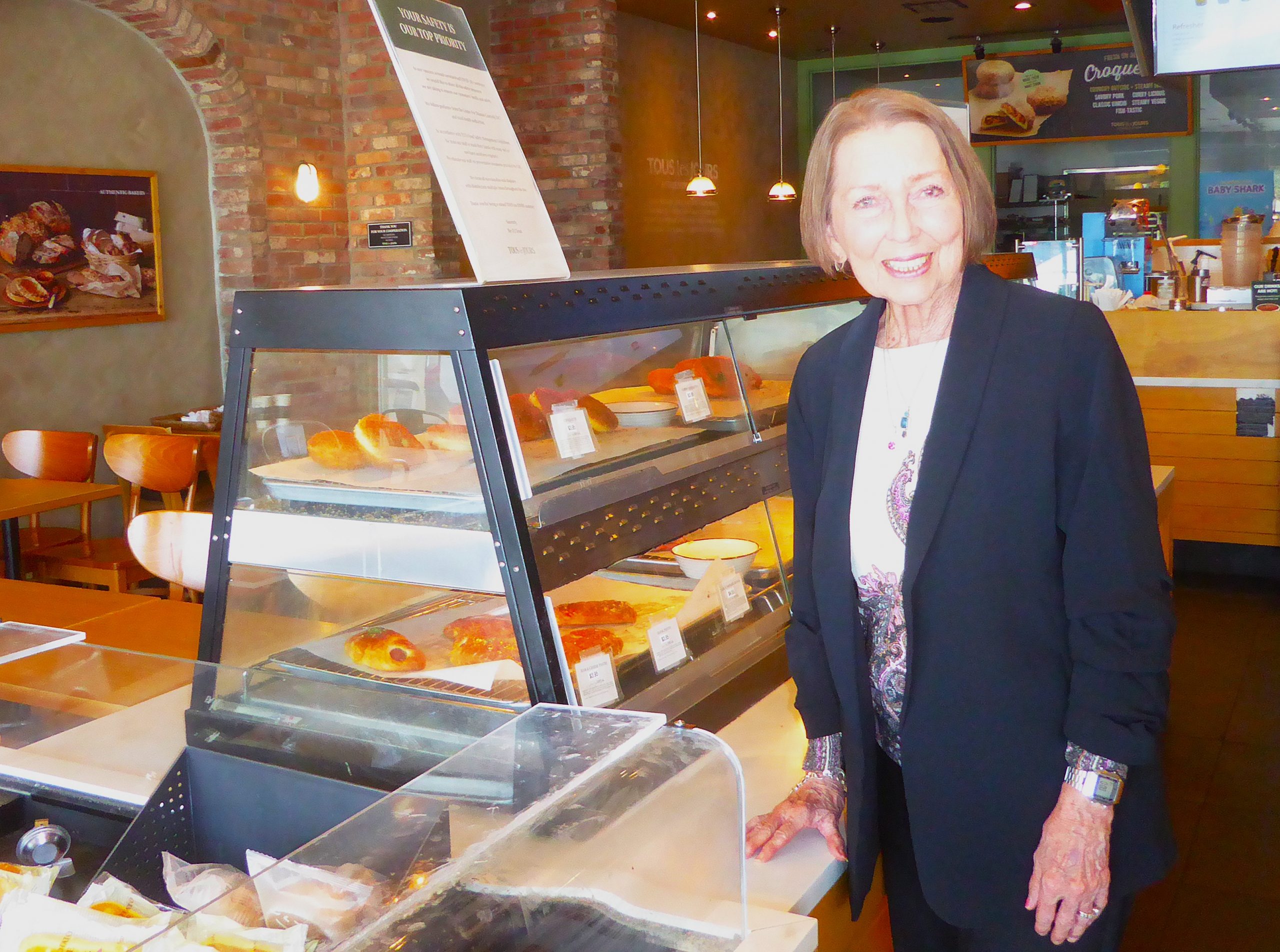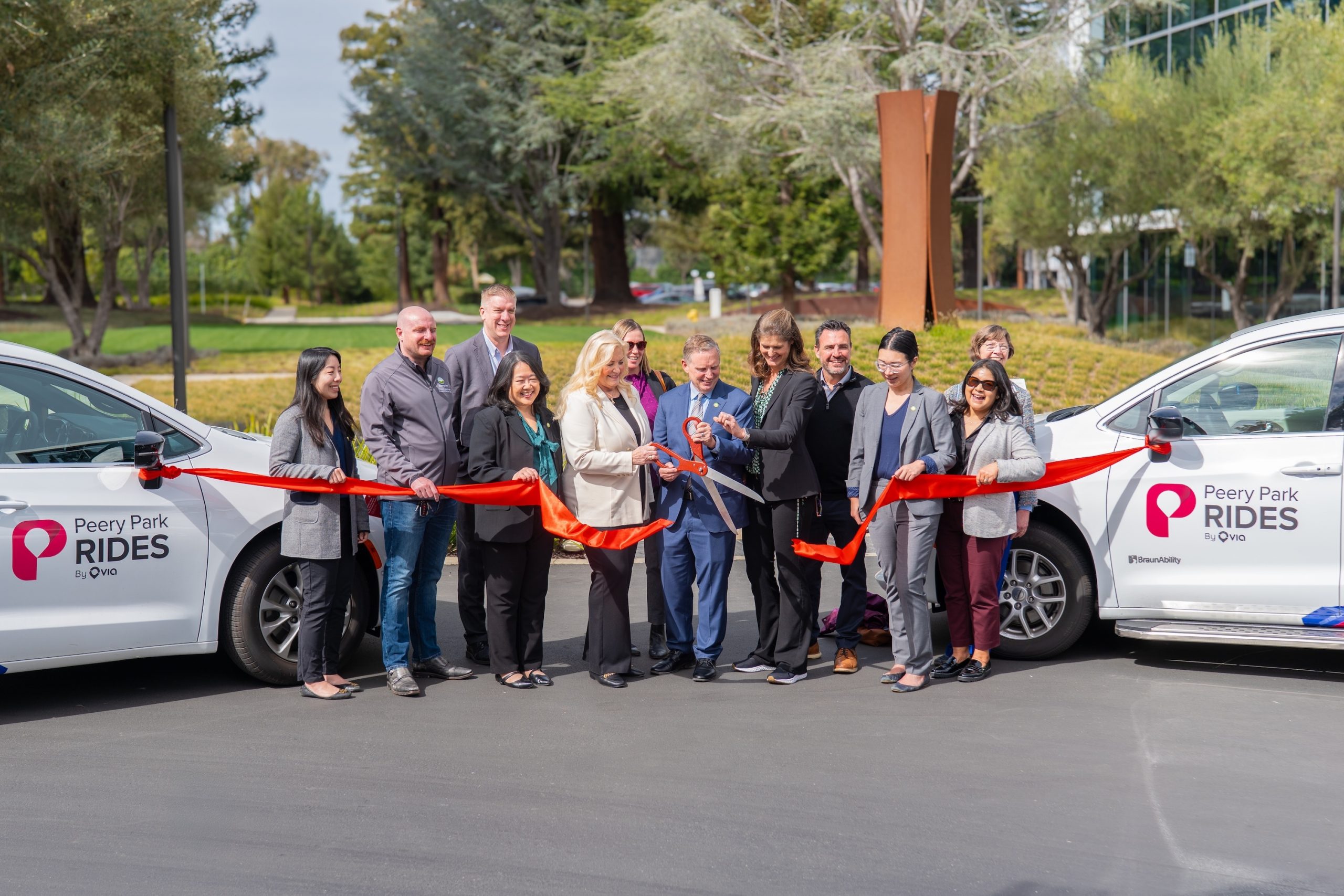



U.S. Marine Corps First Lieutenant Andrew Montgomery is a long, long way from his Santa Clara home. He is almost 7,400 miles away in Kabul, Afghanistan. Montgomery is serving with the NATO-led Resolute Support Mission, which was launched January 1, 2015, to train, advise and assist the Afghan national security forces.
Under the command of U.S. Army General John F. Campbell, the Resolute Support Mission, headquartered in Kabul, is comprised of about 13,100 military personnel from 42 nations. The majority of the troops, some 6,800, are U.S. Marines.
Raised in Santa Clara, where his parents, Christine and Jay Montgomery, still live, 1st Lt. Montgomery, 25 and single, has shared his story by email and in a phone call from Kabul October 21.
“I am privileged to be part of the combined, multi-national effort to aid Afghanistan. Danger is inherent to the job, which I knew when I volunteered for my billet. It does not bother me to be put in harm’s way,” writes Montgomery. “[What’s important is] getting the job done and helping make Afghanistan a better place than when I arrived.”
“The biggest thing Santa Clarans and all Americans can do to show their support [for the troops] is understand there is a lot of sacrifices–such as leaving your family and the comforts of home–that service members have to make to do their job,” says Montgomery, who stays in touch via Facebook and email.
Montgomery graduated from St. Francis High School, Mountain View, in 2008. He received his degree from CSU Northridge, Los Angeles, and his commission in the U.S. Marine Corps in 2012, followed by officer’s training in Quantico, VA.
In January 2014, Montgomery was deployed to the Marine Corps Air Station at Iwakuni, Japan, where he was an Aviation Supply Officer. Since May 2015, he has worked in Kabul. Communicating through interpreters, he assists the Afghan Local Police Special Operations Advisory Group in developing police officers across the country.
Living and working in harm’s way is a fact of life 24/7, on base as well as off. Resolute Support Headquarters is located in a dangerous downtown area across from the U.S. Embassy, and both have been attacked.
The headquarters compound of buildings, leftover from Soviet occupation, looks like a prison from the outside. It is encircled by 15-foot high, reinforced cement walls with barbed wire and sandbags, entry checkpoints and armed guard towers. It is monitored for indirect-fire rockets.
Headquarters has dorms for men and women (two or three to a room), showers, laundry service, four meals a day provided by contract food services, a gym, and a soccer field that is also used for helicopter take offs and landings.
October 11, five people were killed and five injured in a Royal Air Force Puma Mk2 helicopter crash, confirmed as an accident, as it attempted to land at headquarters. Nonetheless, the preferred transportation is by helicopter (for the U.S., the Sikorsky Black Hawk) as driving is potentially more dangerous.
On base, Montgomery carries a 9 mm Beretta pistol. Off base, he also carries a standard issue, M-4 carbine and wears a protective vest and helmet.
“[Serving in the Marines], I have achieved things I didn’t believe I was capable of. I became a leader…with the responsibility to mentor and lead Marines and Afghan police,” says Montgomery, who is following in the boot steps of his maternal grandfather, Bill Gilwee, a decorated Marine Korean War veteran.
Later in November, Montgomery will return to duty in Iwakuni for three or four months before moving to another duty station. In May of 2016, he plans to extend his contract for four more years, then transition out to pursue higher education, leading to a career in Aviation Logistics.
“I would like to express gratitude to my team, who has taught me a lot during my time here. I have been exposed to a lot, both in the nature of the work that we do and the people that I work with. This has been the best experience I’ve had in the military to learn new things and better myself,” writes Montgomery.
“We’re very proud of Andrew and his accomplishments,” says Christine Montgomery, Andrew’s mother. “Every day, we’re very proud. People ask if we’re worried about him. Yes, we worry, but Andrew is very good at staying in touch. And their training is impeccable. They’re really well trained. We hope people will continue to appreciate all branches of the military for their sacrifices. Andrew is our only child.”
“The greatest Americans we have today are serving their country in uniform,” says civilian David Lakin, Public Affairs Staff Officer in a phone call from Kabul. “They are smart, resilient, strong, patriotic. They are great leaders with extra advanced education serving the country in war zones. There is no draft; all are volunteers. I work with tough, extraordinary men and women who are volunteering to go into harm’s way.”
“Myself and my team train very hard to be prepared for whatever happens. I rely on others, and they rely on me to keep each other safe,” adds Andrew.
“The Afghans are happy the Americans and coalition is here. Nobody wants us to leave. We bring security and jobs,” says Lakin. “I believe in what we’re doing to help these people to stand up for themselves. They want peace and security, but they live in a violent country.”
Landlocked and mountainous, Afghanistan is slightly smaller than Texas. Kabul, the capital and largest city, is situated almost six thousand feet above sea level–higher than mile-high Denver–in a narrow valley. It has a semi-arid climate with a very fine “moon dust” that covers everything; one factor making it one of the top 20 most polluted cities in the world. A deadly magnitude 7.5 earthquake hit northeastern Afghanistan, India, and Pakistan October 26, shaking Kabul and the Resolute Support Mission headquarters to the south.




